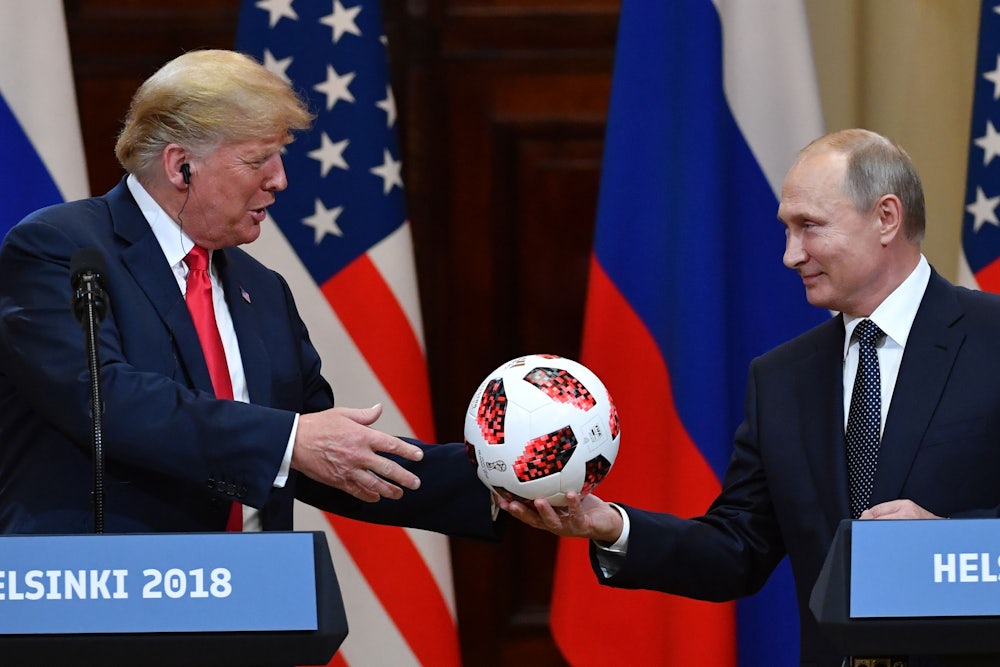Appearing beside Russian President Vladimir Putin on Monday after concluding talks about U.S.-Russia relations, President Trump praised the Russian leader repeatedly and effusively, suggested that Putin and Russia had nothing to do with the hacking of the Democratic National Committee (instead airing a number of conspiracy theories about that hacking), attacked American media, politicians, and law enforcement officials, and suggested that the United States and Russia could collaborate in numerous arenas, including cybersecurity.
Even by the standards of past Trump press conferences, it was an astonishing and disturbing performance. Vladimir Putin, for his part, could not seem to believe his luck. Trump not only accepted his denial of involvement in the 2016 election, he expounded on it. He appeared to encourage special counsel Robert Mueller to collaborate with the Russian military and law enforcement personnel. Trump accepted Putin as an equal and suggested that the United States and Russia had equal roles to play in global affairs—Putin’s dream of returning to a global order shaped by great powers and spheres of influence inched closer to reality. Russia’s annexation of Crimea, its murder of dissidents and ex-spies on foreign soil, and its invasion of Georgia were ignored.
Joint Press Conference from Helsinki, Finland: https://t.co/fadLMDuGiY
— Donald J. Trump (@realDonaldTrump) July 16, 2018
All of this added a sense that this press conference was taking place in an alternate reality. Trump and Putin pushed two seemingly contradictory narratives. The first was that Russia-United States relations have deteriorated thanks entirely to the fecklessness of the Obama administration (and former Secretary of State Hillary Clinton) and the actions of Democrats who are unable to accept that they were bested by one of the greatest political campaigns in history in the 2016 election. The second is that Russia-United States relations are worse than they have ever been—never mind the Cuban Missile Crisis or Josef Stalin—and that, by meeting and finding common ground, Trump and Putin were averting armed conflict. The implication in this narrative, of course, is that the Mueller probe is a national security threat, in that it imperils relations between the two countries and, in doing so, risks war.
The reality, of course, is quite different. But Trump graciously refused to let reality into the press conference and instead gleefully embraced Putin’s version of events, which just happened to, with a couple of minor exceptions, line up with his own. There is no reason to believe, at this point in time, that this summit will change much of anything from a geopolitical perspective, although it will undoubtedly make U.S. allies, particularly in Europe, even more distrustful of Trump than they already were. But it’s obvious that Trump handed Putin a public relations victory, four days after the special counsel’s office conclusively proved Russian meddling in the 2016 election.
